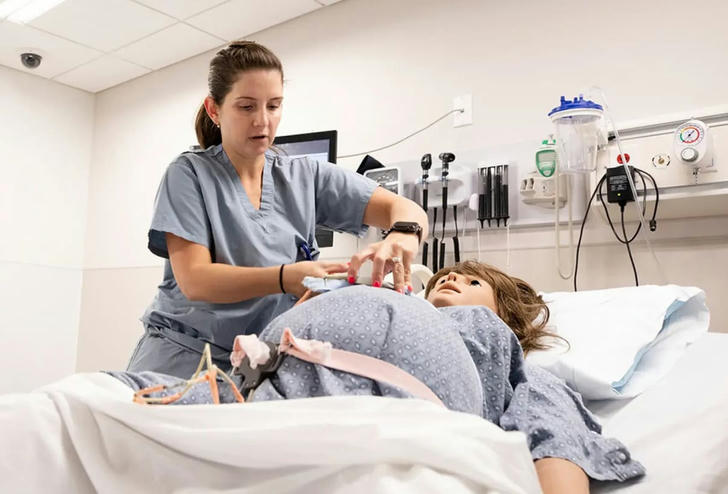From Ambition to Action: How to Become a Registered Nurse in 1 Year
For those drawn to the fast-paced, meaningful world of healthcare, the possibility to become a registered nurse in 1 year may sound like a dream. Yet across the U.S., programs have emerged that allow individuals to complete the education and training required to enter this profession in as little as twelve months. While the path is demanding, it offers an accelerated route into one of the most essential fields in today’s workforce.

The Rise of Accelerated Nursing Pathways
Traditional nursing degrees often take two to four years to complete, depending on the route and educational background. However, accelerated programs—especially those designed for individuals who already hold a bachelor’s degree in another field—have opened the door to become a registered nurse in 1 year. These programs combine intense academic study with clinical training, often requiring a full-time commitment.
Such programs are rigorous, packing the equivalent of several years of nursing education into just twelve months. Success in these pathways depends heavily on focus, resilience, and the ability to adapt quickly to challenging environments.
What Makes the One-Year Track Possible?
There is no shortcut when it comes to learning how to care for patients, administer medications, or perform clinical assessments. However, what makes it possible to become a registered nurse in 1 year is the way these programs are structured. Many are designed for those who have already completed general education requirements or have prior healthcare experience.
By eliminating breaks between semesters, compressing course material into shorter timeframes, and increasing weekly class hours, institutions offering accelerated programs help candidates meet licensure requirements without dragging out the process. These programs are often offered by accredited universities, and they lead to eligibility for the NCLEX-RN exam—the standardized test required to become licensed as a registered nurse in the United States.
A Demanding but Rewarding Journey
Anyone considering this path should be prepared for a full-time commitment. Classes, lab sessions, and clinical rotations may consume more than 40 hours per week. Time management becomes critical, and balancing studies with other life responsibilities can be challenging. Still, for those willing to fully commit, the journey to become a registered nurse in 1 year can be life-changing.
The reward is not just a career in healthcare, but also the opportunity to enter the workforce relatively quickly. In many cases, students who complete these programs are working in hospitals, clinics, or long-term care settings within months of graduation.
What to Expect Along the Way
The curriculum of a one-year RN program often includes courses in anatomy, physiology, pharmacology, and patient care, alongside supervised clinical experience. Programs may vary in structure, but the end goal remains the same: prepare candidates to safely and effectively care for patients across a variety of settings.
Support services such as tutoring, mentoring, and career counseling are often available, though success ultimately hinges on the individual’s dedication. Some programs also provide partnerships with healthcare providers, offering real-world experience that goes beyond the classroom.
Financial Considerations
Cost is an important factor when exploring how to become a registered nurse in 1 year. Tuition for accelerated programs can be significant, though financial aid and scholarship opportunities may be available. Some hospitals even offer tuition reimbursement for employees who pursue nursing credentials.
It’s also important to consider the long-term return on investment. Registered nurses in the U.S. typically earn steady incomes and have access to benefits and job stability. While no program can guarantee employment, nursing continues to be a profession with widespread demand across various regions and specialties.
A Path with Purpose
Choosing to become a registered nurse in 1 year is more than an academic or career decision—it’s often a calling. The role of a nurse extends beyond technical knowledge. It involves empathy, critical thinking, and the ability to act under pressure. Accelerated programs don’t make the journey easier, but they do make it faster for those ready to embrace the challenge.
For individuals with a strong sense of purpose and the drive to push through a demanding curriculum, this option can offer a swift and meaningful entry into the nursing profession. The one-year pathway may not suit everyone, but it remains a compelling route for those eager to step into healthcare and make an impact without years of delay.
Final Thoughts
The journey to become a registered nurse in 1 year is a bold one—intensive, immersive, and filled with both challenges and rewards. While it requires total dedication and the ability to learn and adapt quickly, it can also serve as a powerful launching point for a long-term career in nursing.
Those considering this path are encouraged to research accredited programs, speak with program advisors, and reflect deeply on the commitment involved. For many, the outcome is not just a degree or a license, but a gateway into a profession built on compassion, skill, and service.
